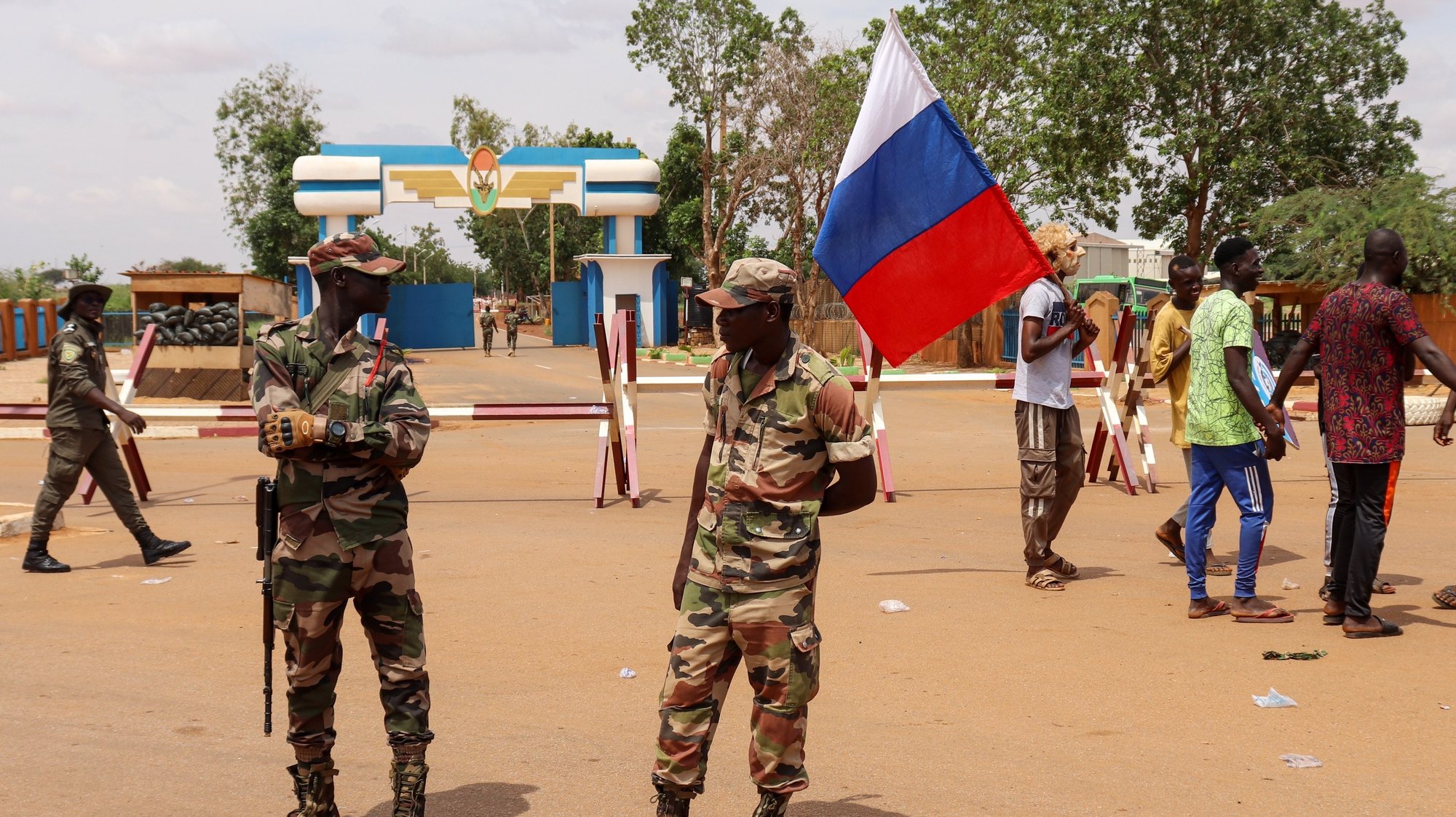The use of Russian flags by African coup plotters does not mean agreement with Moscow’s ideals, maintains Ornella Moderan, who claims that this behavior reflects anti-France sentiment.
The use of Russian flags by supporters of coups in Africa is more a sign of discontent against former colonizers like France than an alignment with Moscow, analyst Ornella Moderan argued this Wednesday.
I think there is a discomfort postcolonial around France in Francophone West African countries and the feeling that the relationship has not been redefined as it should,” he said during a debate in London organized by the Chatham House think tank.
Images of pro-coup protesters in Burkina Faso, in September 2022, and in Niger, last August, showed the They burn the French flag And be Shown flags of Russia..
The expert on African affairs stated that it is “evident that this situation is manipulated by other actors in the field of global competition between great powers” and that Russia is take advantage of instability in Africa through the paramilitary group Wagner.
These are realities that are not because a country like Russia truly embodies the values defended by the majority of the population of West Africa, but because it embodies the [sentimento] anti-France, because it embodies the anti-West,” he argued.
The regional program coordinator for Africa at the Regional Service Center for Africa of the United Nations Development Program (UNDP), Jide Okeke, questioned this diagnosis.
I wouldn’t come to a convincing conclusion that there is, in fact, a positive correlation between what you see out there, people celebrating and burning French flags, and clear, sustainable, long-term anti-French or pro-Russian sentiment. I think it’s too early to say that,” he stated.
Okeke and Moderan spoke during an event titled “Understanding Coups and Democratic Renewal in Africa,” where the results of the UNDP study “Soldiers and Citizens: Military Coups and the Need for Democratic Renewal in Africa” were presented.
Since 2020, Okeke recalled, the continent has recorded eight military coups d’étatincluding the most recent in Niger and in Gabonand three attempts, but, since the 1970s, more than 268 have been recorded across the continent, with an emphasis on West Africa and, in particular, the Sahel region.
Coup d’état in Niger: what is at stake?
Military coup plotters in Gabon announce that President Ali Bongo is under house arrest
In a survey of 8,000 Africans from eight African countries where coups d’état or geographic transitions have occurred, the The majority said they preferred democracy. and a minority explicitly stated that they preferred a non-democratic option.
In addition to economic and social factors, the study also concluded that the political culture in countries with long military dictatorships makes citizens more tolerant to shocks.
“The sanctions are not enough. “Sanctions do not necessarily prevent coup plotters from planning new coups,” said Okeke, who maintains that it is necessary to go further and support political transitions for civilian-led democracies.
This is what we did in the cases of Mali and Chad, and it is necessary that they start thinking about how to restore the constitutional order and maintain the constitutional order” after the military coups d’état, he stated.
This UNDP official considered that, in the Sahel, “military interventions are essential, but not sufficient.”
The intervention in the Sahel needs a complete reconfiguration that prioritizes investments in governance, the strengthening of institutions, the inclusion of young people in political negotiations, to promote stability in the medium and long term,” he argued.
Source: Observadora
